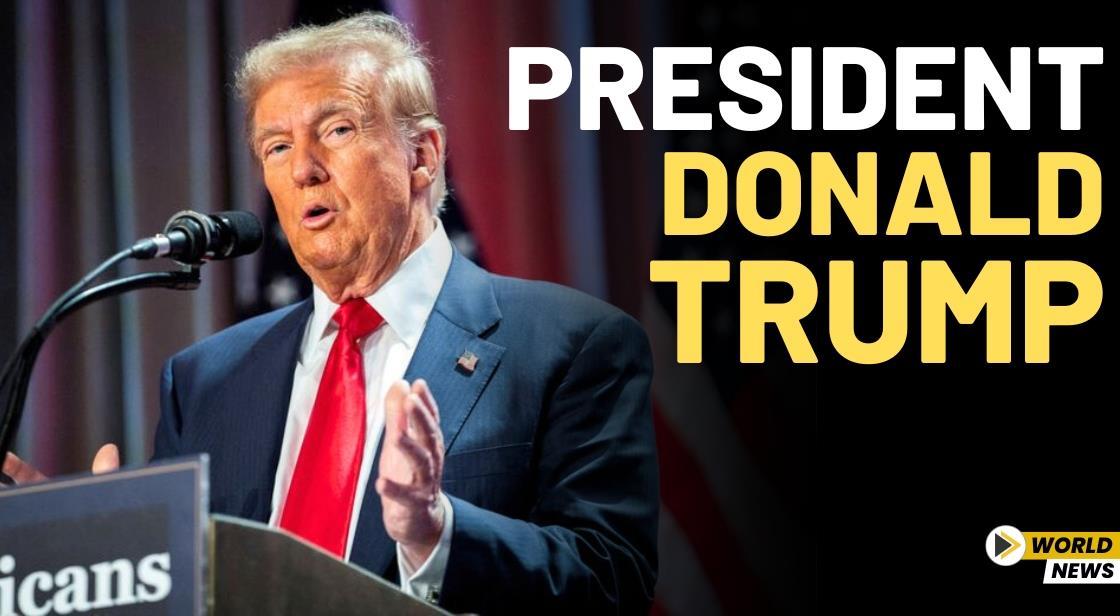Trump Grants One-Month Tariff Exemption to Some Automakers in Canada and Mexico

News Synopsis
U.S. President Donald Trump has announced a one-month exemption from the 25% tariffs on automobiles from Canada and Mexico, provided they adhere to existing free trade agreements. This move temporarily alleviates pressure on the auto industry and halted Wall Street’s steepest decline in nearly three months.
Tariff Exemptions and Future Considerations
The White House clarified that Trump is open to considering further exemptions on other products impacted by the tariffs. However, he emphasized that this move does not signify the end of his trade war with Canada and Mexico, as he continues to pressure both nations on fentanyl smuggling concerns.
During a call with Canadian Prime Minister Justin Trudeau, Trump stated that he was not convinced that the situation had improved, leading to ongoing tensions between the two countries.
Canada’s Response and Retaliation Possibilities
Although Canada has expressed willingness to reduce its retaliatory tariffs if the U.S. eases some of its own measures, negotiations between Ottawa and Washington are still ongoing, and no final agreement has been reached.
Impact on the Auto Industry and Market Reaction
The announcement of a one-month reprieve led to a rebound in auto stocks. General Motors' shares increased by 7.2%, while Ford saw a 5.8% gain. However, both automakers remain down for the year due to uncertainty caused by trade tensions.
The tariffs pose major challenges for automakers that rely on cross-border supply chains to produce vehicles. Under the exemption, cars and trucks that comply with the U.S.-Mexico-Canada Agreement (USMCA) content rules will benefit, providing relief to major automakers such as Ford, GM, and Stellantis.
Potential Expansion to Energy and Agricultural Sectors
According to sources, Trump is also considering eliminating a 10% tariff on Canadian energy imports, including crude oil and gasoline, as long as they meet USMCA rules of origin.
In the agricultural sector, U.S. Agriculture Secretary Brooke Rollins mentioned that potential exemptions for potash and fertilizer are still under discussion.
Rising Trade Tensions with Mexico and Canada
The tariffs have strained relations among the three North American trading partners:
-
Canada has imposed retaliatory tariffs on selected U.S. imports.
-
Mexico has vowed to respond with countermeasures.
-
Pemex, Mexico’s state-run oil company, is exploring new markets in Europe and Asia, including China, as an alternative to the U.S.
The Role of Fentanyl Smuggling in Tariff Policies
Trump’s tariffs are tied to his concerns about fentanyl smuggling, a drug responsible for over 100,000 overdose deaths annually in the U.S. Officials claim that Canada and Mexico serve as transit points for illicit shipments of fentanyl and precursor chemicals.
Economic Implications for Canada
The tariffs pose a significant threat to Canada’s economy:
-
Canada relies on the U.S. for 75% of its exports and one-third of its imports.
-
If tariffs persist, they could derail Canada’s economic recovery and potentially trigger a recession.
-
Canadian Foreign Minister Melanie Joly expressed concerns about the instability caused by U.S. trade policies, stating that Canada cannot endure a new trade dispute every 30 days.
U.S. Economic Impact and Market Reactions
The tariffs are also affecting U.S. businesses:
-
New payroll data shows slowing job growth and declining wage increases for workers switching jobs.
-
The Federal Reserve’s Beige Book reported that uncertainty over Trump’s policies is causing price increases.
-
The U.S. dollar hit a three-month low, while stock markets saw temporary stability after a week of steady declines.
Tariffs on China and Global Trade Implications
Trump has also imposed an additional 10% tariff on Chinese imports, prompting China to retaliate with its own tariffs. The new levies could significantly impact Detroit’s most profitable sector—pickup trucks—if a long-term resolution is not reached.
Increased Costs for Automakers and Consumers
An analysis suggests that the tariffs could add:
-
$3,000 to vehicle costs on average.
-
Up to $7,000 for vehicles assembled in Mexico and Canada.
Such price hikes could particularly impact Republican-leaning consumers, as an Edmunds survey indicates that a significant portion of pickup truck buyers align with Trump’s voter base.
Automakers’ Response and USMCA Compliance
Following a call with Ford, GM, and Stellantis CEOs, Trump announced that vehicles meeting USMCA rules would be exempt.
-
The agreement requires 75% North American content for duty-free access.
-
40% of passenger car components must be manufactured in Canada or the U.S..
-
Pickup trucks must meet a 45% threshold.
Matt Blunt, President of the American Automotive Policy Council, praised Trump’s decision, stating that it recognizes the importance of domestic production compliance.
Outlook for the Auto Industry
Automakers are urging the government for long-term stability in tariff policies.
-
Honda and Toyota are among foreign automakers that could benefit from exemptions due to their large U.S. manufacturing presence.
-
Some competitors without USMCA compliance will continue facing the full 25% tariff.
Conclusion: Uncertainty Still Looms
The one-month exemption provides short-term relief for automakers but does not resolve the ongoing trade tensions. The impact of tariffs on North American trade relations, supply chains, and economic stability remains a pressing issue for businesses and policymakers alike.
You May Like









